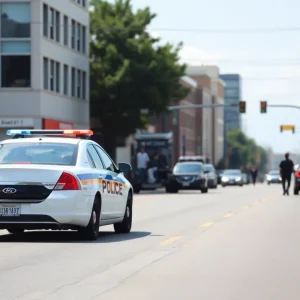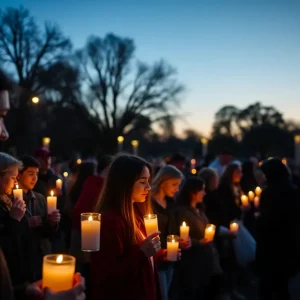Is Memphis Losing Its Charm? Unpacking the Population Decline
Ah, Memphis. Known for its rich history, vibrant music scene, and mouth-watering BBQ. But lately, this beloved city has faced a troubling trend: many residents are packing their bags and leaving. The question is, why are people saying goodbye to a place often seen as a slice of heaven? And more importantly, what can be done about it?
The Numbers Don’t Lie
The statistics are certainly eye-opening. According to recent data from the U.S. Census Bureau, Memphis has witnessed a staggering loss of 28,250 residents since 2010. In the decade from 2010 to 2020 alone, the city lost nearly 13,800 people. But wait—things took a turn for the worse from 2020 to 2023, with an additional 16,786 residents choosing to leave. If you’re keeping score, that’s a serious departure!
Why Are People Leaving?
It’s easy to point fingers, and many have tried to figure out what’s pushing folks away. Former Memphian Chris Clifton, who once held a significant position in the Greater Memphis Chamber, weighed in on the situation. He suggests that it boils down to a lack of critical conversations about the challenges Memphis faces and developing a roadmap for a new, thriving version of the city: “It’s all about having critical conversations about outcomes,” Clifton said.
It’s not all doom and gloom, though. Memphis is not alone in this challenge; about 40 percent of cities across the United States are also grappling with population decline. But while many cities have found their footing and started to bounce back from this unfortunate trend, Memphis seems to lag behind.
The History Behind the Decline
To fully appreciate the current situation, let’s take a trip down memory lane. Back in 1970, Memphis had a population of nearly 624,000. But by 2010, that number had dropped to around 450,000. How did we get here? For years, Memphis relied on an aggressive annexation strategy to bolster its numbers. This method worked for a time, allowing the city to grow its borders by about 60 percent while simultaneously cutting population densities in half.
However, the game changed a decade ago when Tennessee laws made annexation dependent on the approval from residents living in the areas slated for annexation. Suddenly, the options became limited, and with declining population trends, critical questions need answering. Can Memphis reinvent itself?
Charting a New Course
While it may be tempting to throw up our hands and give in to despair, many believe that there is a bright side. Several urban areas that have faced significant losses have taken action by repositioning themselves as talent magnets. Cities like Detroit and Cleveland have embraced innovative solutions, collaborating with residents and focusing on economic revitalization.
The truth is that losing a large number of residents does not automatically mean that Memphis is on a downward spiral economically. There are lessons to be learned from other cities that, while losing people, found ways to thrive.
What’s Next for Memphis?
City leaders are now being called upon to take a hard look at what a declining population means for Memphis. Let’s face it—fewer residents mean fewer people buying homes, less sales tax revenue, and possibly diminished federal funding. The local government has the task of developing a comprehensive plan to address these challenges head-on.
There are projections that suggest West Tennessee may see an influx of new residents, with estimates around 176,000 new people by 2045. But some forecasts indicate that Shelby County specifically could keep losing people for the next 32 years before showing any growth again. Yikes!
Creating a New Vision
As Memphis continues to navigate the choppy waters of population decline, it’s important for its leaders to roll up their sleeves and get to work. It starts with open conversations about what the future might look like and setting achievable goals for economic development.
So, let’s take a page from Chris Clifton’s playbook and start asking some essential questions: What do we want Memphis to be in the years to come? How can we attract newcomers and create a thriving environment for everyone? These discussions must happen sooner than later because time waits for no one.
In the end, Memphis is more than just a city; it’s a community. And with the right focus and determination, there’s still a chance to turn things around. After all, who wouldn’t want to be part of a revitalized Memphis filled with opportunity and growth?








